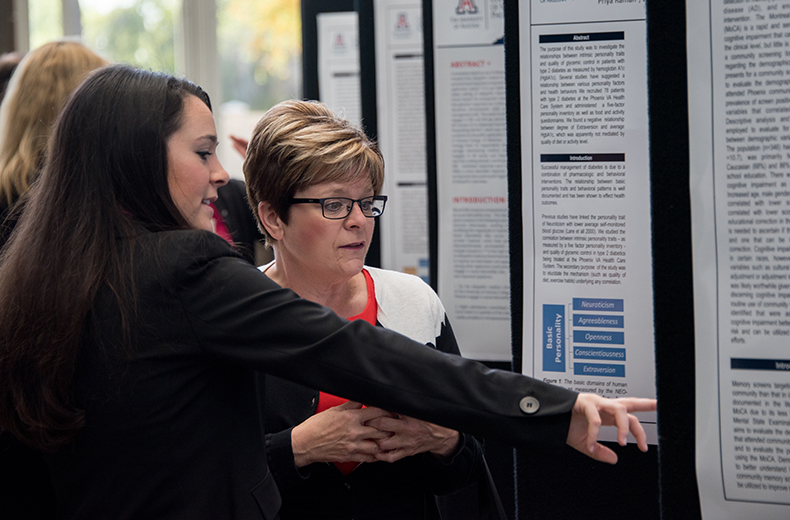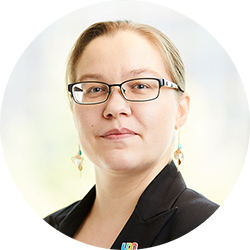
Research Symposium to Discuss Inherited Genes and Risk to Health and Disease

Researchers are changing the face of modern medicine by using patient’s genetic makeup to better understand inherited risk, improve treatment and, in some cases, modify genes to lower a patient’s risk of disease. Experts in genomic medicine will gather to present the latest research, clinical practices, challenges, future trends and ethical considerations at the University of Arizona College of Medicine – Phoenix on Nov. 20.
The second annual research symposium, “reimagine Health: Is My Fate in My Genes?” will discuss the role of genomics in diseases such as cardiovascular, cancer and neurosciences. The symposium will explore the interaction of genetic medicine with environmental modifiers, including socio-economic factors, geographic environment, aging, diet and others.

“We have the ability to start taking that information and really start breaking down the barrier between research and clinical care,” Dr. Wise said. “We can start to think about how we can use the information about people and their health to personalize medicine and provide the best care and management for their health.”
Dr. Wise received her doctorate in genetics and genomics from Duke University and joined NHGRI in 2010. At the NHGRI, she is a project officer for programs that advance the application of genomics to medical science and clinical care with a focus on prenatal sequencing, undiagnosed diseases, genomic medicine and sex chromosome analysis.
She serves as co-coordinator and program director for the National Institutes of Health (NIH) Common Fund's Undiagnosed Diseases Network, whose goal is to form a sustainable national resource to diagnose both rare and previously undiagnosed diseases. She hopes to bring the findings of genomic research to everyday physician’s practice for personalized patient care.
“Right now, we have a lot of genomic knowledge and tests,” Dr. Wise said. “But they still really aren’t a part of routine care in practice. What can we do to bridge that gap?”
She also is a project scientist for the Newborn Sequencing in Genomic Medicine and Public Health (NSIGHT) program, which explores the potential implications, challenges and opportunities associated with the possible use of genomic sequence information in the newborn period.
“Newborn screening is one of the places where genetic information is used a lot,” Dr. Wise said. “It’s interesting to see how we can intervene in this very early time point and potentially have a large impact on the life of a child.”
The Research Symposium will be held at the Phoenix Biomedical Campus, 475 N. Fifth St., beginning at 9 a.m. Wednesday, Nov. 20, 2019. The event is free and open to the public.
Topics
About the College
Founded in 2007, the University of Arizona College of Medicine – Phoenix inspires and trains exemplary physicians, scientists and leaders to advance its core missions in education, research, clinical care and service to communities across Arizona. The college’s strength lies in our collaborations and partnerships with clinical affiliates, community organizations and industry sponsors. With our primary affiliate, Banner Health, we are recognized as the premier academic medical center in Phoenix. As an anchor institution of the Phoenix Bioscience Core, the college is home to signature research programs in neurosciences, cardiopulmonary diseases, immunology, informatics and metabolism. These focus areas uniquely position us to drive biomedical research and bolster economic development in the region.
As an urban institution with strong roots in rural and tribal health, the college has graduated more than 1,000 physicians and matriculates 130 students each year. Greater than 60% of matriculating students are from Arizona and many continue training at our GME sponsored residency programs, ultimately pursuing local academic and community-based opportunities. While our traditional four-year program continues to thrive, we will launch our recently approved accelerated three-year medical student curriculum with exclusive focus on primary care. This program is designed to further enhance workforce retention needs across Arizona.
The college has embarked on our strategic plan for 2025 to 2030. Learn more.